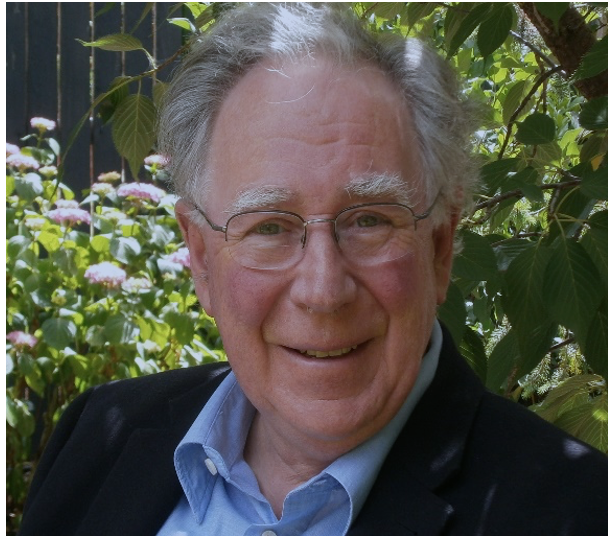Pope Francis was a man from the peripheries
April 25, 2025
In the much-discussed novel and movie Conclave, the cardinals eventually elected a truly pastoral, caring man as pope, someone close to the people – just like Pope Francis.
I loved both the novel and the film and they’re extraordinarily accurate in the details of the papal election process. Another book that tells you a lot about the internal workings of actual recent conclaves is Gerard O’Connell’s The election of Pope Francis. The Inside Account of the Conclave that Changed History (Orbis Books, 2019).
O’Connell, an experienced Irish-born, Rome-based journalist, is unambiguous that Jorge Mario Bergoglio, archbishop of Buenos Aires, was the runner-up in the 2005 conclave that elected Joseph Ratzinger, Pope Benedict XVI. Despite this, Bergoglio didn’t seem, as they say in Italian, “papabile” (an electable candidate for the papacy), in early 2013 after Benedict’s resignation.
What seems to have propelled him into the cardinal electors’ consciousness was a speech he gave at the General Congregation (pre-conclave meeting) on Saturday, 9 March 2013. Until then, the cardinals had listened to 110 seemingly endless speeches repeating the same old things, and the then leading candidate for pope, Angelo Scola of Milan, gave an obtuse theological lecture which left everyone stone cold.
Among this uninspired verbiage stepped Cardinal Bergoglio of Buenos Aires. O’Connell says he “delivered an unforgettable 3½-minute intervention in Spanish that catapulted him onto the radar of many electors… He touched hearts and many cardinals began to see him as a candidate”.
He spoke about the church emerging from its self-enclosed clerical myopia. “The church is called to go out from herself,” he said, “and go to the peripheries, not only geographically, but also the existential peripheries: those of the mystery of sin, those of pain, those of injustice, those of ignorance and religious indifference, those of intellectual currents, and those of misery.”
He said when the church “does not go out from herself to evangelise, she becomes self-referential and then gets sick”. He continued: “Put simply, there are two images of the church: the evangelising church that goes out from herself… or the worldly church that lives within herself, of herself, for herself.”
The English Cardinal Murphy O’Connor said the only other cardinal to give a speech matching Bergoglio was the Archbishop of Manila, Luis Tagle, who would again be seen as a possible “papabile” in the coming 2025 conclave.
Francis has lived-up to the ideals of his speech. This is a man who went out to others, who wanted to be one of the people, who was utterly inclusive. Who can forget his almost throwaway line, “Who am I to judge?” when speaking of LGBTQI people. He saw the church not as an exclusive sect, but as a “field hospital” where everyone was welcome. At the core of his being, he was pastoral in a profound sense.
Sure, he wasn’t perfect. Until the 2018 crisis in Chile, he was tone deaf to sexual abuse and, like many outside the Anglosphere, tended to see it as problem in the developed world, especially an Anglo issue. But he was persuaded to send respected abuse investigator, Maltese Archbishop Charles Scicluna to Chile, and his detailed report showed the pope had made a grave error of judgment. It led to a genuine apology by Francis to victims and, particularly, to the men who had pursued the issue with the bishops. From then on, sexual abuse was on his radar.
While Pope Francis appointed women to senior positions in the Roman curia and gave laypeople a vote in the Synod of Bishops, “he fell short”, as US Sister Joan Chichester says, “on actions for and about women… Women have nothing to do with the theological commissions where decisions are made that affect the spiritual lives of their half of the church. The roles of women in the Church remain minimal and largely unchanged from those of his predecessors”.
But Francis has genuinely internationalised the Church and the College of Cardinals who will vote for his successor. Our region of the world illustrates this: there are cardinals in Papua New Guinea (John Ribat in Port Moresby), Tonga (Soane Patita Paini Mafi), Timor Leste (Virgílio do Carmo da Silva in Dili), New Zealand (John Dew, retired archbishop of Wellington) and Melbourne (Mykola Bychok, head of the Ukrainian Catholic Eparchy of Saints Peter and Paul), who, at 44, is the youngest of the cardinals. Francis appointed 108 of the 135, or 80% of the cardinals under 80, who will vote for the next pope.
Jorge Mario Bergoglio, Pope Francis (2013-2025), was a truly great pope who took the reforming Second Vatican Council (1962-1965) seriously and began to make it real in the Church, a task sidelined by his predecessors. May he rest in peace.


